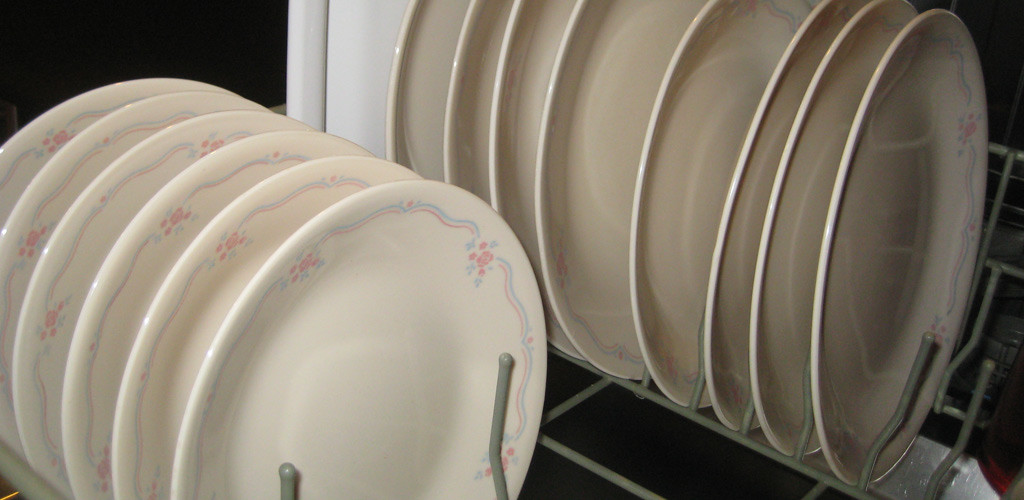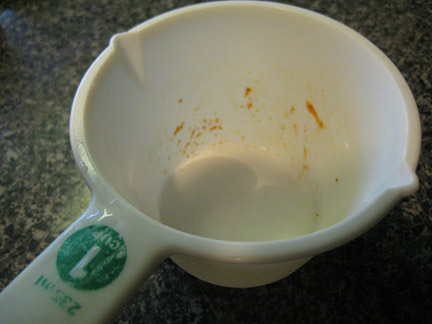
A group of dishwasher manufacturers is warning that new Department of Energy regulations will hamper the effectiveness of new dishwashers. From The Hill:
The Association of Home Appliance Manufacturers is accusing the Department of Energy (DOE) of a politically motivated drive to increase dishwasher efficiency standards, which are so bad that they would cause consumers to re-wash dishes, erasing any efficiency gains.
Rob McAver, the group’s head lobbyist, said regulators are going too far and the new rules will allow only 3.1 gallons to be used to wash each load of dishes. “
Some of the group’s members, which include companies like GE Appliances & Lighting and Whirlpool Corp., tweaked their models to comply with the DOE’s December proposal to ratchet up standards. They then ran standard tests with food stuck to dishes. “They found some stuff that was pretty disgusting,” McAver said.
“The poor performance that would result would totally undercut and go backwards in terms of energy and water use, because of the need for running the dishwasher again, or pre-rinsing or hand-washing, which uses a lot of water,” he said.
In reading more about this issue, it seems that the DOE is telling manufacturers how much water new dishwashers will be allowed to use without giving regard to how much water is needed to get the dishes clean. The AHMA (manufacturers) released their own statement, which includes this statement:
“… latest proposed energy and water levels were published before manufacturers were consulted. Our testing shows that the impact on dishwasher performance would be disastrous,” noted Joseph M. McGuire, president of AHAM.
My regular readers know I’m passionate about this topic — after dishwasher detergents were reformulated to be less effective, I began using a commercial-grade detergent in my now 11-year-old dishwasher. That dishwasher was built for use with phosphate detergents, the standard at the time it was manufactured, and it simply did not perform well without them. I can’t imagine anything good coming out of the combination of lower-powered consumer grade detergents and less water.
I’m not terribly surprised to hear of the new regulations, especially after what happened with the new residential water heater regulations in April. My readers have read and heard me venting about our supposedly-efficient front-loader washing machine many times — yes, I succumbed to the hype and went with something “efficient,” which has a myriad of expensive water sensors, dirt sensors, suds sensors and other parts that break far too often for my liking. (If I could turn back the clock, I’d go back and buy a traditional top-loader… something I’d like to do at some point anyway.)
A comment under the article also reminded me of the proverbial “Law of Unintended Consequences:”
“I am a civil engineer in the wastewater specialization. The rule requiring small tanks for toilets results in sedimentation and clogged sewer pipes since there is often not enough water in the sewer to move waste to the treatment plants. This problem would be made worse if kitchen waste were added to the sewers without sufficient water to transport it. Plumbers love to charge people to clean out clogged pipes… These dishwashers will cost public works billions to maintain sewers. Note that double flushing your toilet may save future plumbing costs both to the homeowner and to public works!”
While saving water sounds like a very good thing, especially with portions of the country suffering from a drought, our municipal sewer systems and home septics were designed with the expectation that there would be sufficient water to wash the waste away. San Francisco has had problems stemming from large areas of low-flow toilet installation — there’s not enough water going through the sewers to wash the waste away, causing it to back up and stink. They’ve had to introduce bleach and extra water to keep the sewers moving.
I hope that the appliance manufacturers can be left to do what they should be doing best — simply creating dishwashers that wash dishes.











Leave a Reply